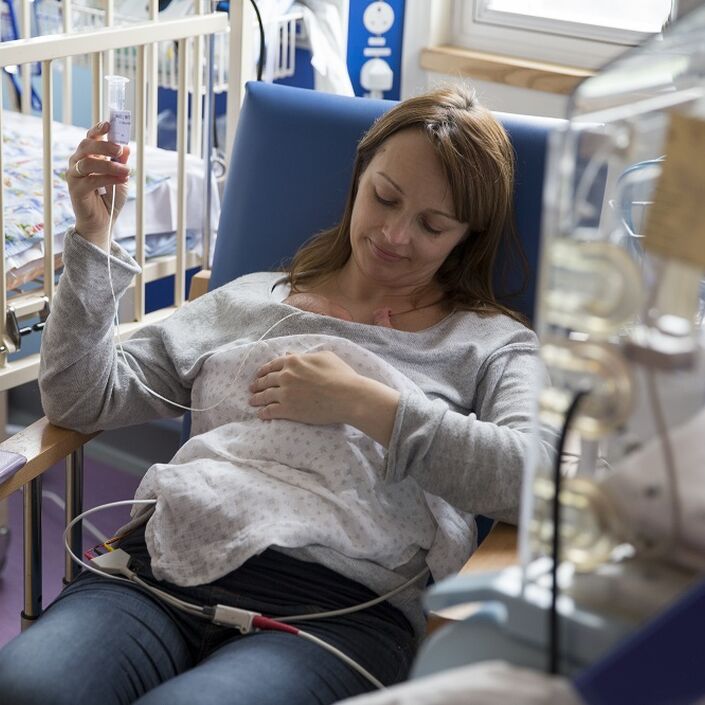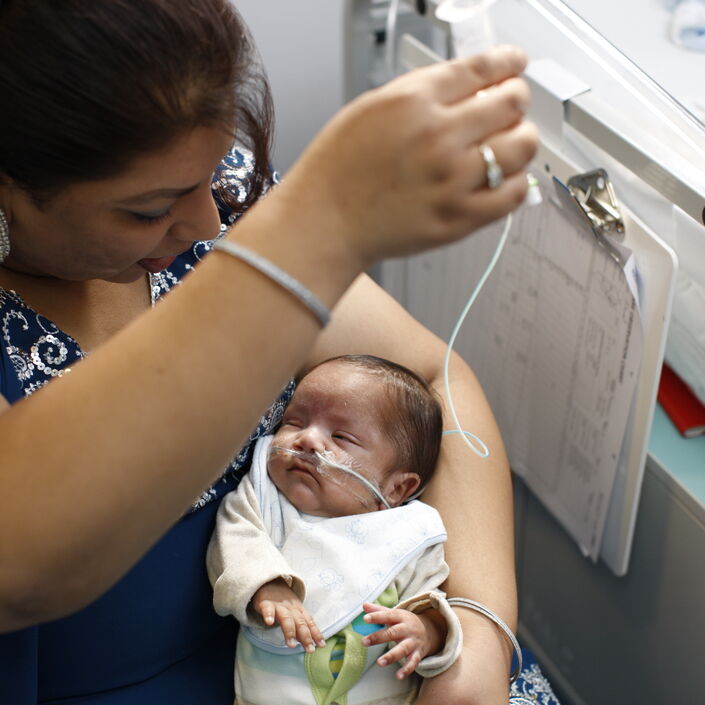When you get home from the neonatal unit, you may have questions about how to support your baby’s feeding and make sure that feeding is a positive and nurturing experience. The unit staff will give you support to prepare you for feeding your baby when you go home and will be happy to answer any questions you have. No question is too small and it is always important to ask if you need more support.
Every baby is different, and should be fed according to their own needs. Your baby will demonstrate signs that they are ready for a feed, such as moving their eyes rapidly, putting their fingers into their mouth, making sucking motions (rooting) or becoming restless. These are called feeding cues.
You can be sure that your baby is feeding well if they:
- are mostly settled and calm between feeds
- have plenty of wet and dirty nappies
- are growing and gaining weight.
If you think your baby is feeding too much or too little, talk to your health visitor, GP or other healthcare professional supporting you and your baby. We have lots more information about feeding that you may find helpful.
Your baby's growth and weight
Steady weight gain is a good way of showing that your baby is feeding and growing well. But all babies will gain weight at a different rate.
Your community neonatal nurse, if you have one, or health visitor will normally weigh your baby once a week for the first few weeks at home and record it in your baby’s red book (also called a personal child health record). Talk to them about any questions you have so you can make a plan together to monitor and support your baby’s growth. You can also talk to them if:
- you think your baby is not gaining enough weight
- feeds start lasting significantly longer than usual
- you or your partner is finding breastfeeding uncomfortable.
Your baby may have a dietitian to help with these concerns.
If your baby has a nasogastric (NG) tube
Your baby may need to be fed using a nasogastric tube (also called an NG tube). It may be you, your health visitor or your community neonatal nurse who will replace the tube when you go home. This will depend on your baby’s needs and the support the unit provides. Before going home, a member of unit staff might show you how to feed, care for and replace the tube yourself. Sometimes you may need to return to hospital for the tube to be replaced.
Support will always be available if you don’t feel comfortable with replacing the tube yourself. If you have any questions or concerns, talk to the unit staff.
We have more information about tube feeding that you may find helpful.


